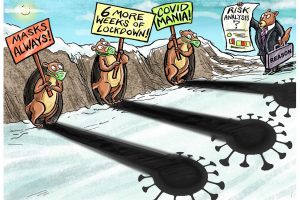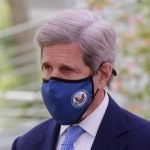Supreme Court to Decide Whether Second Amendment Protects Concealed Carry of Firearms
Ken Blackwell 26 APR 2021
The Supreme Court announced Monday that it will decide a core gun rights issue: Whether the Second Amendment requires states to give permits to law-abiding citizens to carry concealed weapons.

The Second Amendment protects “the right to keep and bear arms.” The Supreme Court held in its 2008 landmark decision District of Columbia v. Heller that the Second Amendment guarantees that right for private citizens. In its 2010 follow-up case McDonald v. City of Chicago the Court held that the right to bear arms applies against state and local governments the same way it does the federal government.
But both of those cases involved a law-abiding citizen who wanted to keep a single handgun in his home for personal protection, which would be the absolute floor of what the Second Amendment could possibly provide. It left all other issues for future cases as to how far the right to keep and bear arms extends.
Perhaps the most heavily debated follow up issue is what a citizen’s Second Amendment rights are when he leaves his home. Given the popularity of concealed carry permits, one of the questions concerns carrying weapons as people go about their daily lives.
Most states provide permits to all qualified applicants. However, a few states claim the authority to require citizens to prove special circumstances to qualify for a permit, such as having an abusive ex-spouse or being a prosecutor who fears retaliation from the criminals he is prosecuting.
New York has such restrictions. In Monday’s order, the justices granted review in a constitutional challenge to New York’s law, with the petition arguing that the Second Amendment entitles them to concealed-carry permits for purposes of general self-defense only, without any special circumstances.
Second Amendment supporters have been trying for more than a decade to get the High Court to weigh in on this issue. The Court has repeatedly denied petitions from various challengers. Given both Heller and McDonald were 5-4 decisions, experts suspected that moderate Justice Anthony Kennedy and moderate-conservative Chief Justice John Roberts were the reasons gun-rights supporters did not have the votes to tackle this issue.
The is the first major petition on the Second Amendment to be considered since Justice Amy Coney Barrett was confirmed to the seat formerly held by Justice Ruth Bader Ginsburg. Evidently Second Amendment supporters now at least have support from the necessary four justices to grant review, though it is not yet clear whether they have the additional support for five votes to prevail in the case.
Former U.S. Solicitor General Paul Clement is representing the challengers. Clement also argued before the Court in the Heller and McDonald cases, and is regarded as one of the top litigators in the nation on this issue.
The Biden Administration has not yet expressed a view on the case. It will likely be argued late this year, with a decision expected by June 2022.
The case is New York Rifle & Pistol Association v. Corlett, No. 20-843 in the Supreme Court of the United States.
Ken Blackwell is the former U.S. Ambassador to the U.N. Human Rights Commission, and is currently on the board of directors of the National Rifle Association and also the Distinguished Fellow for Human Rights and Constitutional Governance at the Family Research Council.


